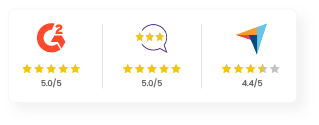A Complete Guide
Skills-Based Talent Development: Building Strong Teams and Leadership Pipelines
Skills-Based Talent Development: Building Strong Teams and Leadership Pipelines
Making the shift to a skills-first approach isn’t just a change in how one department thinks about learning. It’s a change in how the entire organization operates. It requires a learning culture that puts skills at the center of everything: the work people do, how that work is described, and who is chosen to do it.
This means moving away from static job descriptions and outdated performance reviews. Instead, organizations need dynamic, real-time skills data that gives a clear picture of what people can do today—and what they’re capable of tomorrow. That level of insight doesn’t just improve learning strategy; it reshapes how teams are built, how people grow, and how future leaders emerge.
A shift like this touches every part of the business, but HR, talent, and L&D teams are the ones who’ll feel it most. They’ll need to rethink how they recruit, how they measure potential, and how they design development programs.
The upside? When done well, skills-based talent development unlocks massive potential across the organization.
From Static Roles to Evolving Skill Journeys
Skills-based talent development recognizes that people grow in nonlinear ways. Careers aren’t ladders anymore—they’re lattices. People move sideways, pivot, explore, and come back stronger. A skills-first framework supports this by helping employees understand their own strengths and giving them visibility into new opportunities across the business.
It also empowers managers to become better coaches. When they know what skills are in play, and where the gaps are, they can guide team members more effectively—whether that means recommending a course, assigning a stretch project, or advocating for a promotion.
At its core, skills-based development is about seeing people as more than their job title. It’s about building a culture that values potential, supports continuous growth, and develops talent in a way that aligns with both individual ambition and business strategy.
With AI-powered learning, organizations can now go a step further—delivering personalized development paths that match employee aspirations with business needs. These tailored learning journeys adapt in real time, using AI recommendations to surface the right content, opportunities, and experiences for each learner. It’s a more agile, responsive way to drive career skill growth—one that scales effortlessly across diverse teams and roles.
In short: better data, better development, stronger teams.






